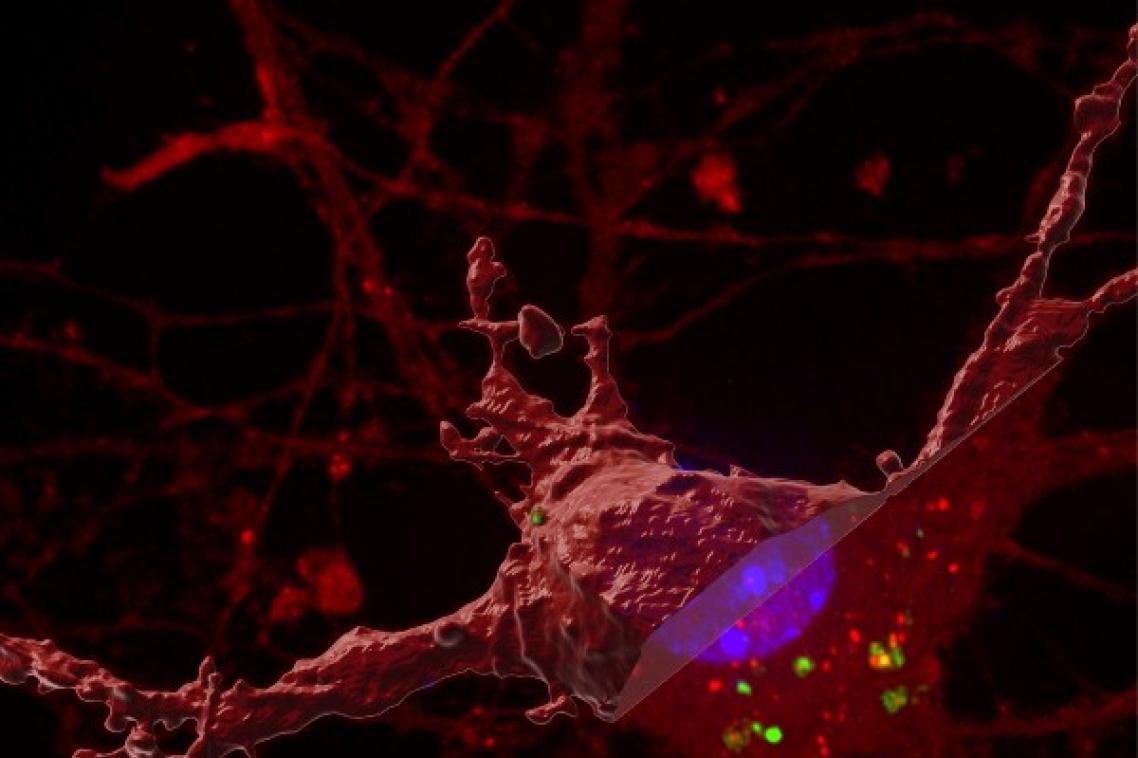New discovery for how the brain ‘tangles’ in Alzheimer’s Disease

University of Queensland researchers have discovered a new ‘seeding’ process in brain cells that could be a cause of dementia and Alzheimer's disease.
UQ’s Queensland Brain Institute dementia researcher Professor Jürgen Götz said the study revealed that tangled neurons, a hallmark sign of dementia, form in part by a cellular process that has gone astray and allows a toxic protein, tau, to leak into healthy brain cells.
“These leaks create a damaging seeding process that causes tau tangles and ultimately lead to memory loss and other impairments,” Professor Götz said.
Professor Götz said until now researchers did not understand how tau seeds were able to escape after their uptake into healthy cells.
“In people with Alzheimer’s disease, it seems the tiny sacs transporting messages within or outside the cells, called exosomes, trigger a reaction which punches holes in the wall of their own cell membrane and allows the toxic seeds to escape,” he said.
"As more tau builds up in the brain, it eventually forms tangles, and together with abnormally configured proteins known as amyloid plaque, they form the key features of these neurological diseases."
Queensland Brain Institute researcher Dr Juan Polanco said the findings would help scientists piece together how non-inherited forms of Alzheimer's disease and other dementias occur.
"The more we understand the underlying mechanisms, the easier it will be to interfere with the process and to slow down or even halt the disease," Dr Polanco said.
"Along with Alzheimer's, this cellular process might also play a leading role in other cognitive diseases, from frontal lobe dementia to rare neurological disorders with toxic tau.
"Even in cancer research, there is emerging evidence showing these exosomes can load unique messages that reflect the condition of tumours and enables them to replicate and spread cancer more quickly through the body.
"Improving our understanding of how Alzheimer's and other diseases spread through exosomes will allow us to create new ways to treat and intervene in these cellular processes in the future."
Professor Götz directs research at QBI's Clem Jones Centre for Ageing Dementia Research. A team in his research group, led by Dr Polanco, is looking at the role of exosomes and cell dysfunction as a risk factor in neurodegenerative diseases.
This research is published in Acta Neuropathologica (DOI:10.1007/s00401-020-02254-3, PMID: 33417012).
It has also been featured in the US-based AlzForum website.
Media: UQ Communications, communications@uq.edu.au, +61 7 3365 1120, +61 424 002 566.
Topics
Related articles

Australia needs doctors – so why are hundreds of qualified international physicians unable to work?

Greater attention needed on community service workforce
Media contact
UQ Communications
communications@uq.edu.au
+61 429 056 139
